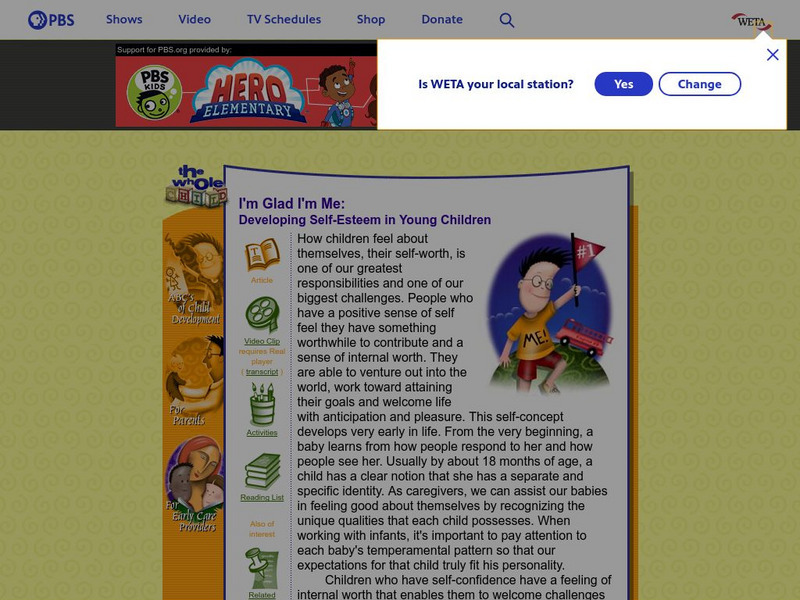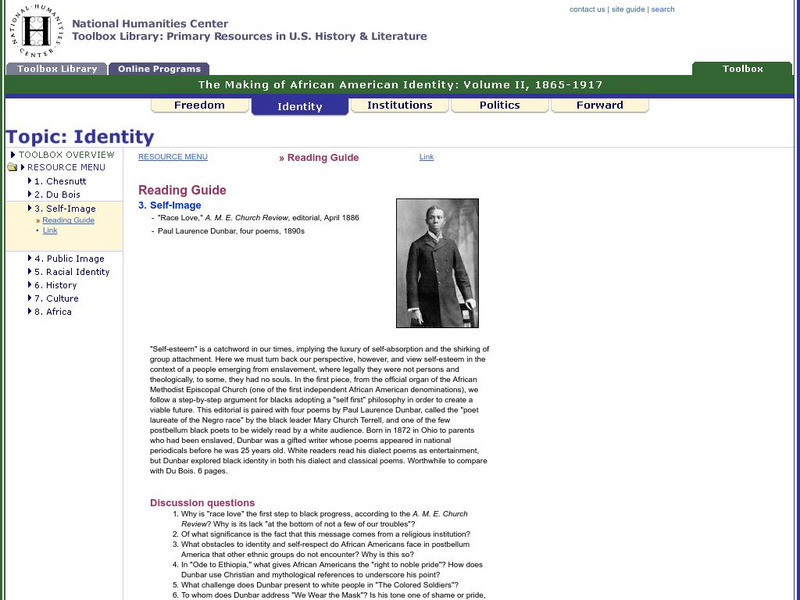Hi, what do you want to do?
Curated OER
What I Really Care About
Fourth graders explore the concept of values and apply it to what they think is important. Different situations are analyzed to see if their values are maintained.
Curated OER
Dramatic Dilemmas
In this activity, students will develop skits that deal with the following aspects of decision making: projecting possible long term impacts of a decision and taking risks.
Curated OER
A New Generation of Fighters
Middle schoolers discuss the reasons why people are less likely to take a stand on issues today than they were in the past. In groups, they research the efforts of Kings, Parks and others to end discrimination and racism. They read...
Curated OER
Student Dictionary
Third graders examine the concept of alphabetizing. They develop a class dictionary, creating definitions of themselves, and typing in their names, pronunciation, and the definitions, and inserting their picture into their document.
Curated OER
Gender Role Development
Learners look in newspapers and magazines and discuss gender role development and stereotypes. In this gender lesson plan, students bring in their favorite objects that have no gender stereotype linked to it.
Curated OER
The Harlem Renaissance: Black American Traditions
High schoolers examine the time period of the Harlem Renaissance. As a class, they are introduced to five artists and discuss their art and techniques. Using the internet, they also research the philosophers of the time period and how...
Curated OER
Good Mental Health Word Search
In this word search worksheet, students identify fifty words related to good mental health in a word puzzle. Examples include hormones, self esteem, and depressed.
Curated OER
Dramatic Dilemmas
Students read The Road Not Taken by Robert Frost, and develop skits that deal with projecting possible long-term impacts of decisions, and taking risks.
Curated OER
Teaching Juveniles How to Plan for The Future
Students in a special education class discover ways to effectively plan for the future. In groups, they research the programs and services available to them to discover the opportunities that await them. They read different sections of...
Curated OER
In-Group Favoritism
Students discover how to cross social boundaries. In this character education lesson, students discuss the positive and negative impacts of favortism they witness in their local community as well as the international community....
Curated OER
I Am . . .
Eighth graders read Eloise Greenfield's novella, 'Sister'. They write their personal responses quickly, foregoing concern about usage, spelling, and punctuation at this point. They write about their day, or may write about any...
Curated OER
Who's In The Bag?
Students bring in a bag from home with personal items. In this ice breaker lesson, students bring 10 personal items to school. The teacher shows them, asks the students questions, and has them guess as to the owner of the bag.
Curated OER
Journey Home: The Active Learner
Students discuss focus questions prior to reading and preview the book, "Journey Home." In this language arts lesson, small groups present vocabulary words. Students complete after-reading discussion questions and choose writing...
Curated OER
Our Nebraska Story
Students research and use their discoveries to create a computer presentation and a quilt block on Nebraska. They will tell the story of Nebraska in an oral presentation using each piece of the quilt.
Curated OER
The Autobiography of a Middle School
Young scholars use digital cameras to document school experiences. Afterwards, they use computer software to manipulate their photos and write poetry, essays or biographies to compliment the pictures. Finally, students create an...
Curated OER
Who's in the Bag?
Pupils express personal characteristics with items from home. They introduce themselves to one another.
Utah Education Network
Uen: Self Acceptance
Lesson focuses on students recognizing strengths in themselves and others as well as learning to write in verse.
PBS
Pbs: I'm Glad I'm Me Developing Self Esteem
Advice for parents and caregivers about the importance of fostering positive self-esteem, with suggestions for helping children discover their self-worth. Link to a video that demonstrates different activities used with young children to...
National Humanities Center
National Humanities Center: Toolbox Library: Self Image, Making of African American Identity: V. 2
An editorial and four poems that explore African American strivings for self-esteem in the late-nineteenth century. All documents referenced within this resource attempt to shine a light on African American self-image and identity.
Khan Academy
Khan Academy: Increasing Sarah's Self Efficacy: A Case Study
This is a 5-question quiz pertaining to the passage "Increasing Sarah's Self-Efficacy: A Case Study"
CommonLit
Common Lit: "Self Concept" by Saul Mc Leod
A learning module that begins with "Self-concept" by Saul McLeod, accompanied by guided reading questions, assessment questions, and discussion questions. The text can be printed as a PDF or assigned online through free teacher and...
Other
Embrace the Future: Resilient Kids
Advice about strengthening your ability to bounce back from adversity. Learn key skills, such as problem solving, making friends, and positive thinking, that will help you stay happy, healthy, and productive.



























